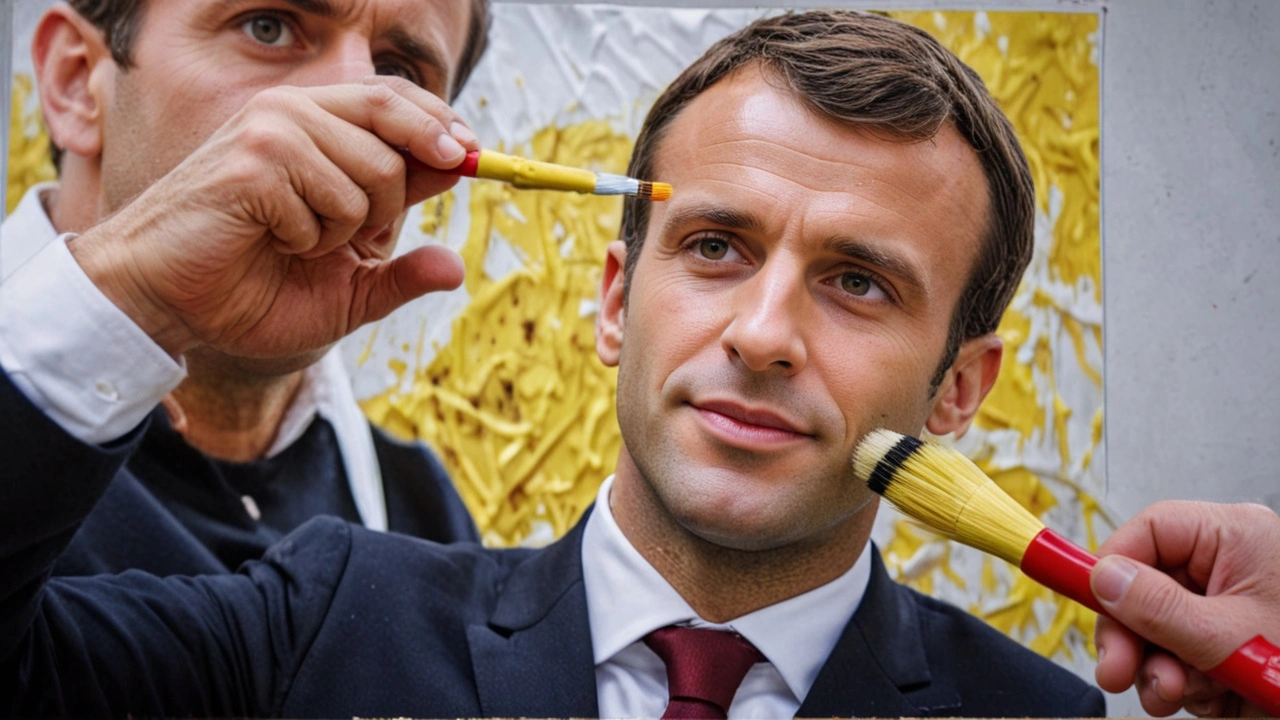Emmanuel Macron's Political Legacy Takes a Hit
In a surprising turn of events, French President Emmanuel Macron has found his political legacy severely impacted by an unexpected defeat in a recent snap parliamentary election. Macron, who positioned himself as a center-right figure aiming to bolster France's and Europe's political stature, now faces an uphill battle. The election's outcome has left him grappling with what appears to be an unanticipated shift in the country's political landscape.
During his tenure, Macron heavily championed closer European integration, economic stability, and the pursuit of a self-reliant European defense. His vision was clear: A strong, united Europe spearheaded by a reinvigorated France. Yet, this recent electoral defeat at the hands of the left-wing New Popular Front coalition curtails many of his ambitious goals. The results did not merely symbolize a loss in parliamentary seats; they put a significant dent in Macron's envisioned legacy and sway both domestically and internationally.
The Electorate's Unexpected Turn
The snap parliamentary election was widely perceived as a litmus test for Macron's administration and its policies. Many expected him to secure a resounding victory, fortifying his mandate and bolstering his negotiating power in dealing with European matters. However, the electorate, driven by various dissatisfactions and newfound hopes, leaned towards the left-wing New Popular Front coalition. This coalition, known for its more progressive and inclusive policies, contrasted starkly against Macron's pro-business stance, attracting a considerable portion of votes.
This electoral shift was not merely about numbers—it was a stark expression of the public’s sentiments. Voter perception viewed Macron’s approach as somewhat detached and arrogant. Concerns regarding economic inequalities, social justice, and national pride played pivotal roles in shaping electoral outcomes. Furthermore, the victory of the far-right National Rally party highlighted the electorate’s anxieties related to immigration and cultural identity, issues that have been simmering under the surface for some time.

A New Political Landscape
Macron’s loss has led to an altered political landscape in France. He now stands at a crossroads, with the necessity to collaborate with the left-wing coalition or opt for a more technocratic administration. The election results demand that Macron reconsider his approach to governance, aligning more closely with the prevailing political winds to ensure stability and continuity.
This newfound coexistence with a left-wing bloc dramatically affects Macron's policy capabilities. He must now select a prime minister from the left-wing faction, a move that is crucial for addressing various national and international issues. The prime minister's role will be vital in dealing with prominent matters including Russia’s geopolitical actions, European trade policies, and internal fiscal policies. Collaborating with a coalition that has distinct views from his own will not be straightforward, but it is a necessary pivot for maintaining effective governance.
European Implications
The repercussions of Macron's electoral defeat extend beyond France's borders. As a strong proponent of European unity and defense, Macron's reduced authority within France translates to diminished influence in European politics. His vision of a united, self-reliant Europe, capable of asserting its economic and defensive prowess independently, might be deferred as he navigates new political dynamics at home.
Other European leaders, who once saw Macron as a linchpin for advancing collective European goals, may now reevaluate their strategies. The chances of achieving Macron’s vision for Europe, which included tighter fiscal policies, a more integrated defense mechanism, and stronger economic cohesion, have significantly decreased. Europe now faces a period of uncertainty as it assesses the implications of France's new domestic politics on broader European objectives.

Looking Ahead: Challenges and Prospects
The path forward for Macron is fraught with challenges. His administration must address the electorate's concerns that catalyzed this paradigm shift. Economic policies need reorientation towards more inclusivity; disparities and social injustices need redressal. Moreover, Macron must dispel notions of elitism that have pervaded public perception, reinstating a sense of genuine representation and empathy.
On the international front, maintaining France's standing amidst changing political dynamics is essential. Macron's influence within the European Union must be reasserted through a pragmatic approach redefining his strategies to accommodate new realities. Collaborating with the left-wing coalition does not merely mean thwarting resistance but embracing a broader vision that encapsulates diverse viewpoints. This adaptability will determine Macron’s success in preserving his political legacy.
The Rise of the Far-Right
The ascent of the far-right National Rally party in this election emphasizes deeper societal concerns. Issues surrounding immigration and cultural identity resonate with a significant portion of the electorate, propelling the party to a noteworthy position. This development underscores a crucial pivot point in French politics, demanding nuanced solutions beyond conventional political discourse. Addressing such core identity concerns is vital for stability and national unity, requiring innovative policies that balance security and inclusivity.
The journey ahead for Macron is undoubtedly complex. However, it also presents opportunities for recalibration and innovation. By embracing the evolving political landscape and stepping beyond traditional paradigms, Macron can still forge a path that aligns with the broader aspirations of France’s citizens while maintaining France's influential role within the European Union.
French President Emmanuel Macron's legacy remains in the making, shaped by adaptable leadership that can respond to both national and international stakes. Only time will reveal whether this political setback becomes the crucible from which a more robust and resilient era of leadership emerges.

Write a comment